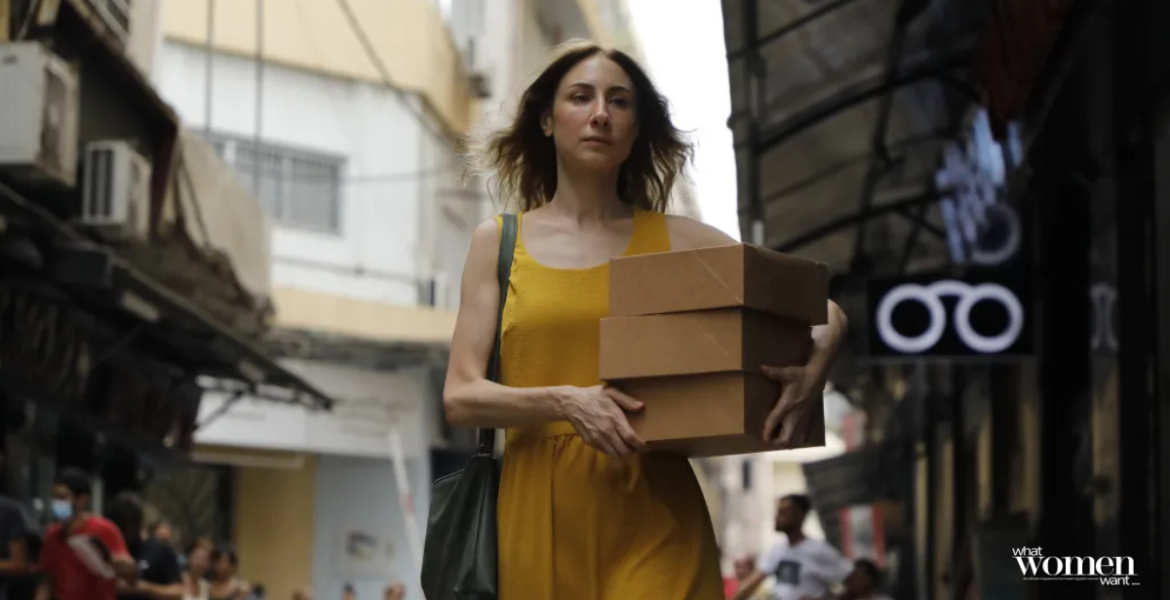Arzé follows a single mother and her teenage son as they navigate Beirut’s sectarian divides in search of their stolen scooter, their only source of livelihood. Through the eyes of the protagonist, the film captures the raw realities of life in a country forever changed by political and religious fragmentation.
Mira Shaib, the director, brings a unique personal perspective to this story, offering both a deeply intimate and universal portrayal of Lebanon’s complexities.
A Story Rooted in Reality
“When we started writing the movie and filming it, the situation in Lebanon was already bad, but it was not as bad as now,” Shaib reflects on the difficult backdrop against which Arzé was created. The film’s goal was to show a side of Lebanon not often captured in mainstream media. Shaib and her team chose to depict the streets and neighborhoods that shaped their upbringing, areas often overlooked by filmmakers in favor of Beirut’s more polished, tourist-friendly spots.
“We wanted the international audience…to see the real Beirut,” she explains. “We want to film the streets and we want to film the places that I used to go get coffee…the places that I’ve walked.” This choice to embrace the everyday reality of the city has resonated deeply with viewers.
Following its global tour, Arzé has been embraced by audiences worldwide, from the U.S. to Egypt. For Shaib, the response has been both humbling and surprising. She recalls the first screening in Cairo International Film Festival, noting the warmth of the Egyptian audience’s reaction: “It was insane, because everyone has a view of Lebanon from TV or movies, but they hadn’t seen it like this before.”
The Symbolism of Arzé
The film’s title character, Arzé, is not only a mother but a symbol of Lebanon itself. Shaib reveals that the name was chosen purposefully. “The Arzé tree is what all Lebanese agree on and love,” she explains, referring to the iconic Lebanese cedar tree. “It symbolizes our strength, our perseverance… It’s the most authentic thing that unites us.”
For Shaib, Arzé represents Lebanon’s resilience in the face of sectarianism, a theme explored throughout the film. The script weaves personal and collective experiences, highlighting the daily struggles of Lebanese people who exist in a divided but deeply connected society. “Lebanon is not divided, it’s diverse,” says Shaib. “We have been coexisting for so long, but we still face the same problems.”
The motorcycle in the film, central to the plot, also carries symbolic weight. For Shaib, it represents the stolen rights of the people, taken by political groups and sectarian leaders. “The motorcycle is how they try to bury the identity we want to live in,” she states. “When we don’t belong to them, we have to do it on our own.”
The Open-Ended Future
The film ends on an open note, leaving the fate of Arzé’s son, Kinan, uncertain. Shaib explains that Kinan’s story reflects a reality faced by many young Lebanese, caught between the desire to leave the country for a better life and the deep ties to home. “We don’t know what’s going to happen… Are we going to leave or not?” she says, acknowledging the dilemma faced by many of her generation. “I grew up wanting to leave Lebanon… but many of us don’t know how to do it, or where to go.”
This ambiguity reflects the larger uncertainty in Lebanon today, a country in crisis, with young people like Kinan uncertain about their future.
A Message of Hope Amidst Struggle
Despite the grim realities portrayed in the film, Shaib’s ultimate aim is to offer a message of hope. The response from the Lebanese diaspora has been overwhelming, with many expressing gratitude for the film’s ability to provide a temporary escape. “You made us forget everything. For two hours, we forgot everything that is happening,” one viewer told Shaib after a screening. “You made us proud.”
Shaib’s goal, above all, is to make people feel something—whether it’s a smile, a laugh, or a tear. “I want to leave a good message… to put a smile on people’s faces,” she says.
In Arzé, Shaib has succeeded in capturing the essence of her country’s struggles and resilience, all while delivering a film that speaks to the universal human experience of love, loss, and survival.

